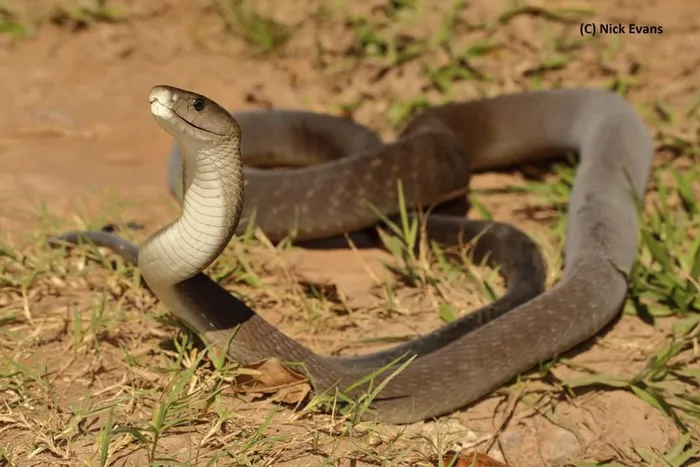Understanding black mamba bites: insights from Durban’s snake rescuer

A black mamba. | Nick Evans
Durban — Black mambas being common in Durban does not mean many people are bitten and die.
This was according to Durban snake rescuer Nick Evans who recently addressed and educated the public on black mamba bites.
Evans said the black mamba is an infamous, feared snake with a false reputation for aggressiveness. A bite is often believed to be a death sentence.
He said out of interest, he looked up his snakebite records collected this year.
Most records Evans hears are from other snake rescuers or on social media and news sites. One or two doctors also keep him abreast.
He said most records he will share are from the Greater Durban region and surrounding areas.
“In 2024, I have heard of, and noted, seven black mamba bites on people, the most I have personally noted in a year,” Evans said.
He said mambas are not getting more aggressive but it is beneficial and important to learn what leads to bites.
Of the seven bites:
- Three were snake handlers (it is a high-risk job!).
- One was a public member trying to capture one.
- Two, while unconfirmed (minimal details, but enough to make Evans believe the following), sounded like the individuals were likely trying to kill the snake.
- One sounded like a freak accident.
He said all seven patients survived.
Evans gave the following lessons that can be learnt:
- The chances of being bitten by a black mamba are extremely slim if you leave them alone. Should you decide to try and capture or kill the snake, you put yourself at high risk of being bitten.
- Among all the snake catchers in the Greater Durban area, we probably get anywhere up to approximately 250 black mamba calls a year (some years will be more or less). In many cases, these mambas, inside or outside homes, have ample opportunity to bite people, if they wanted to. But it is not their nature. They will shy away from conflict unless self-defence is necessary. Something I quickly learnt when I started working with them.
- If you are bitten in the Greater Durban area (where there are several hospitals), or near a decent enough hospital, including some government hospitals that are good with snakebite, such as Ngwelezana in Empangeni, you will very likely survive. In Durban, Netcare St Augustine’s Hospital and Inkosi Albert Luthuli Central Hospital have good reputations for snakebite treatment, and I have heard Hillcrest is good too (not saying they are the only ones).
“Dry bites or mild envenomations also happen, not that you know immediately (must be monitored in hospital, until time tells). In such cases, antivenom is not required, but the doctor makes that call,” Evans said.
“If you would like to see what you really need to fear living in Durban, or anywhere in South Africa, Google ‘crime statistics’ followed by your city or South Africa. You will immediately see black mambas, and other snakes, are the least of your worries.”
Evans explained that mambas visit looking for shelter, rats, dassies/hyrax etc, with bare minimal risk of hurting people. Humans may visit for a variety of sinister reasons, and will often have no problem causing injury or death.
Additionally, he urged doctors and paramedics in KwaZulu-Natal, to please share records of confirmed snakebites to please let him know. He said he would not seek confidential patient details, such as an address. Of most interest is the species involved and how the bite happened.
Even those not in the medical field but hear of a bite, to please share details with him.
“It’s nice to be able to make notes, and then use them to educate people about snakes,” Evans said.
WhatsApp your views on this story at 071 485 7995.
Daily News